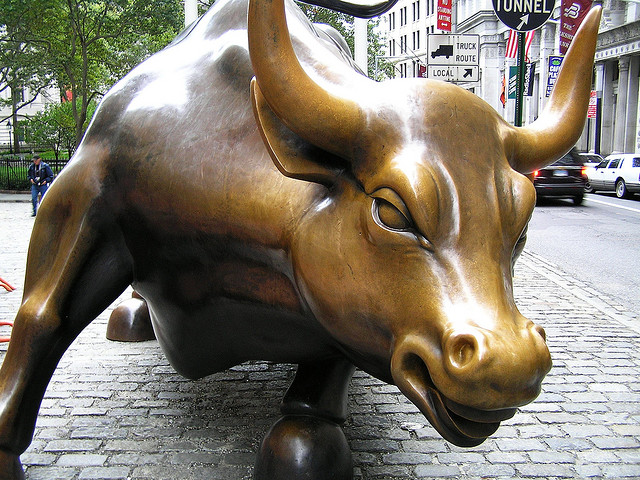In May of 2014, the Dow Jones Industrial Average (DJIA) rose 0.82%, the S&P 500 Index (SPX) increased 2.10%, and the Nasdaq (NDX) gained 3.11%.
The biggest question for domestic financial markets centers around the ten-year Treasury bond. In my opinion, the ten-year yield serves as a guidepost for how quickly the U.S. economy is growing, a key ingredient in determining Federal Reserve monetary policy for the balance of 2014.
With the current yield around 2.6% as of June 6, the ten year’s price strength has surprised many investors who are betting the yield should rise towards 3% if and when the economy firms (remember, when bond yields rise, bond prices go down).
What remains a puzzle is determining the present state of the U.S. economic affairs. Many investors are frustrated at how long it has taken for the much anticipated and expected improvement in the U.S. economy to materialize.
In their eyes, the current nominal GDP growth rate of 2-3% is well below the historical averages of other recoveries, normally around 4-5%. Even worse, first quarter GDP growth came in at -1.0%, far beneath the expected contraction of -0.5%.
Just to be fair, much of the weakness is attributed to the horrible weather the country experienced during the winter, a record one for its severity and duration.
The bull camp on the U.S. economy, of which I remain a member of, still have reasons for believing growth will accelerate. First, the continuing expansion of domestic energy production in oil and gas will continue to reduce our trade and budget deficits.
Second, improving consumer confidence should keep the services component stable and potentially be a catalyst for better-than-expected growth. Third, the housing sector is in the peak of the selling season and keeps bouncing along its bottom, as compared to nearly all long term trends of sales and occupancy.
Fourth, the technology industry remains an area where emerging components like cloud and mobile computing, the Internet of things (interconnected internet-enabled cars, homes, industrial shops, plants, and machinery, among other examples), and biotechnology all are seeing explosive growth.
Fifth, with rock bottom nominal and real interest rates, merger and acquisition activity has been strong and should remain so. Last but not least, corporate earnings keep coming in at record high levels. Earnings for S&P 500 Index companies are expected to grow a little over 10% by 2015, according to a forecast by research firm Yardeni & Associates.
Taking the opposite side of the argument is the bear camp, which believes the recovery remains far too dependent on cheap money, is burdened by persistent weakness and overcapacity in all areas of housing and real estate, and contains far too little wage, income, and job growth.
During the second half of the year, the verdict will be determined. The key threshold, in my opinion, is whether nominal GDP growth tops 3%. I have no way of knowing for sure, but my guess is that the economy will exceed that mark.
DISCLAIMER: The investments discussed are held in client accounts as of May 31, 2013. These investments may or may not be currently held in client accounts. The reader should not assume that any investments identified were or will be profitable or that any investment recommendations or investment decisions we make in the future will be profitable. Past performance is no guarantee of future results.




